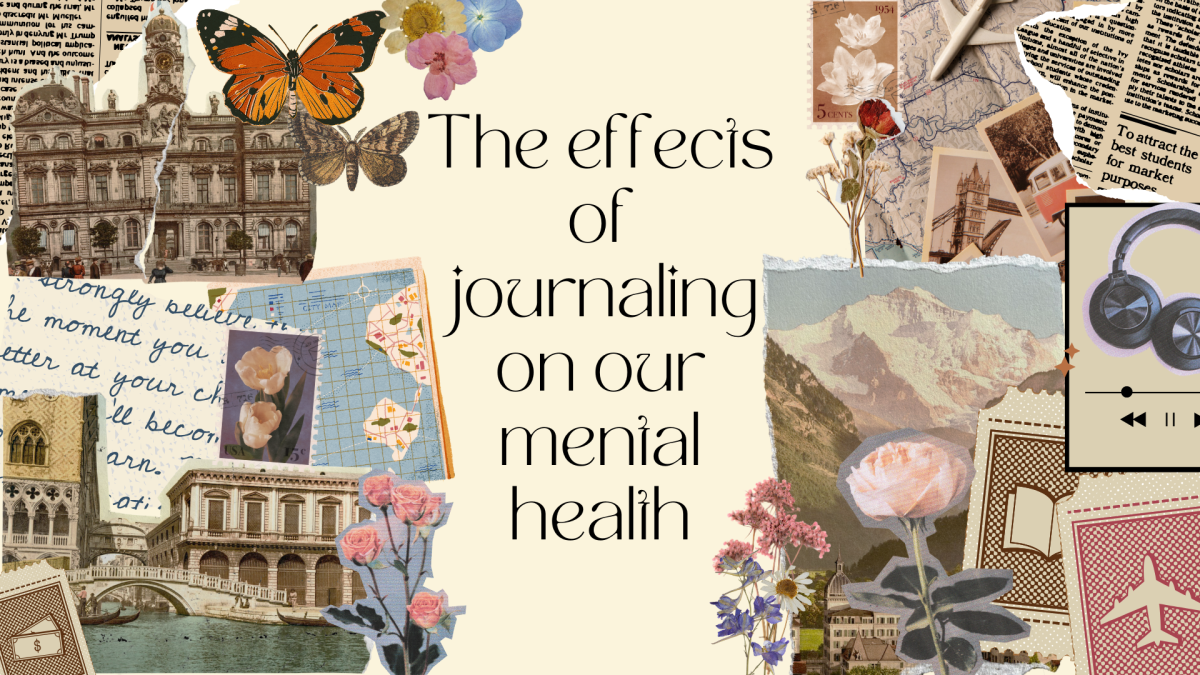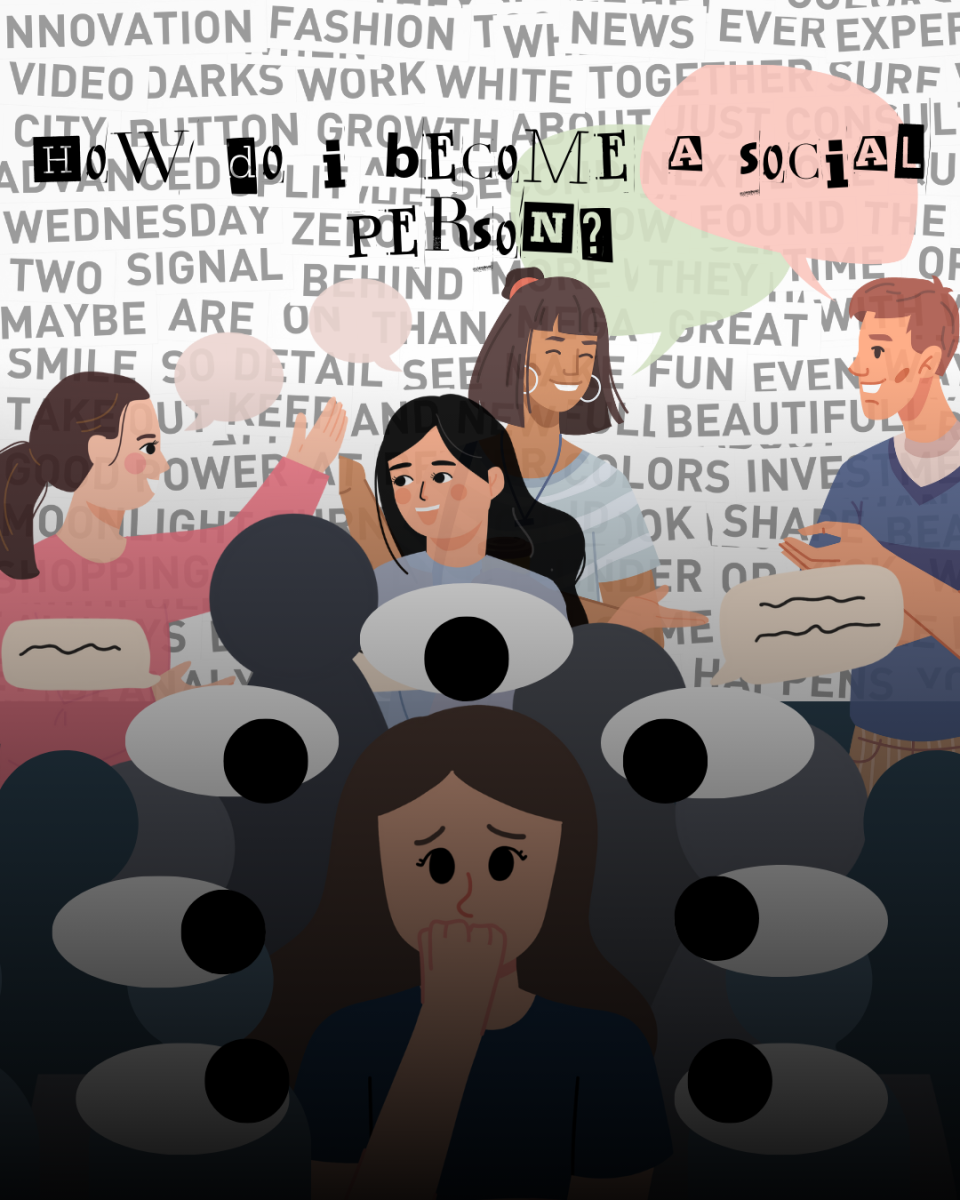Imagine yourself after a long day out, at home sitting next to a window as the sky turns a rich dark blue color with a warm drink, a notebook and pen in hand. You’ve had a very eventful day. What better way to unwind than writing your thoughts down on paper?
Whether it’s been a fun day out with friends or a stressful day at school, journaling has been shown to provide distance from pessimistic thoughts, process emotions in a healthy way, look at situations in a different light, help reduce stress, improve a person’s well-being, assist in self-discovery, and record memories and thoughts.
Keeping a journal and writing one’s thoughts down can help organize thoughts about the day or situations that might be stressful as well as separate those feelings from ourselves. This process of separating thoughts from oneself is called cognitive defusion. An example of cognitive defusion would be listening to music while working on homework; you hear the music in the background but you aren’t actively listening or paying attention to it.
In other words, cognitive defusion “creates space and distance to consider [emotions] in a more objective way,” Sabrina Romanoff, a licensed psychologist, said.
Instead of looking at a situation from your own point of view, writing your emotions and thoughts down can make them feel like they’re something small that can be handled.
“The idea is that you are not your thoughts, emotions, or physical symptoms; instead, you are the context in which they occur,” Romanoff said.
Jeffrey Pedroza, a psychology professor at Santa Ana College and former therapist for 20 years, shares a similar sentiment to Romanoff.
“Emotions and thoughts often are difficult to sort out. The process of writing about them sometimes forces our brains to see them on paper and gives us a fresh perspective of what is really going on,” Pedroza said.
An article published by the University of Rochester Medical Center also helps provide some of the pros of journaling. The article states that journaling is a way to manage anxiety, reduce stress, help cope with depression, help people prioritize their problems, recognize and learn how to cope with triggers, recognize pessimistic thoughts or behaviors and supply a chance for self-affirmations.
When asked what some of the cons of journaling are, Pedroza stated that journaling could potentially allow people to fester in their emotions and pessimistic thoughts. Instead of giving people a way to express their emotions in a contained space, journaling could do the opposite and allow emotions to become overwhelming.
“Some may sink deeper into their anger, and this leads to the cons of journaling. Festering in negativity and reinforcing it through journaling may not have a positive outcome,” Pedroza said.
The reduction of stress with the use of Expressive Writing (EW) has been proven in a study published by the National Library of Medicine (NLM) with the use of the 3-Minute Mental Makeover (3MMM). According to an article written by ENSEARCH, the 3MMM required people to write down and share their answers to the prompts “Write three things for which you are grateful. Write the story of your life in six words. Write three wishes you have.”
The study found that “patients, families, and health care practitioners all reported lower stress after participating in this time-limited, guided writing exercise. Most patients and families thought the 3MMM writing exercise was helpful, independent of past use of journaling to cope with stress.”
Another study, published by Cambridge University Press, found that expressive writing can have physical and mental health benefits. Some of the long-term health outcomes included “fewer stress-related visits to the doctor, improved immune system functioning, reduced blood pressure, improved lung function, improved liver function, fewer days in hospital, improved mood, affect, feeling of greater psychological well-being, reduced depressive symptoms before examinations [and] fewer post-traumatic intrusion and avoidance symptoms.”
Besides helping deal with stress, journaling could help “clarify the present, reflect on the past, and plan for the future. It is a way of capturing our personal history,” Pedroza said.
Writing down thoughts on paper could help us learn about what we value, what makes us feel certain emotions, what we think about others and ourselves and what we want from life.
Margarita Tartakovsky, a writer for Psych Central and author of “Vibe Check: Be Your Best You,” shared her thoughts on journaling’s ability to deepen an individual’s self-discovery in one of her articles published by healthline, a website that focuses on providing health information.
“You get to discover a different piece or pattern every single day. Journaling provides a much-needed pause to help us reconnect to ourselves and rediscover who we are. When we write, we learn our preferences, pain points, fears, favorites, and dreams. We are constantly evolving. Journaling helps us to listen, bear witness to these changes, and simply get to know ourselves a whole lot better,” Tartakovsky said.
To put it simply, journaling is a beneficial activity that everyone can take part in, whether it’s on paper or on a digital device. Some may find it hard to start, to open up, or be fully honest.
Pedroza shares some advice about how to start journaling.
“My advice is to go slow. Start with safe, everyday thoughts and events. Then when a comfort level arrives, go deeper. Feel free to include photos, art, stickers, etc. Make it your journal. You can prompt yourself by trying to capture who you are. What is my favorite color, number, food or deeper subjects,” Pedroza said.


































